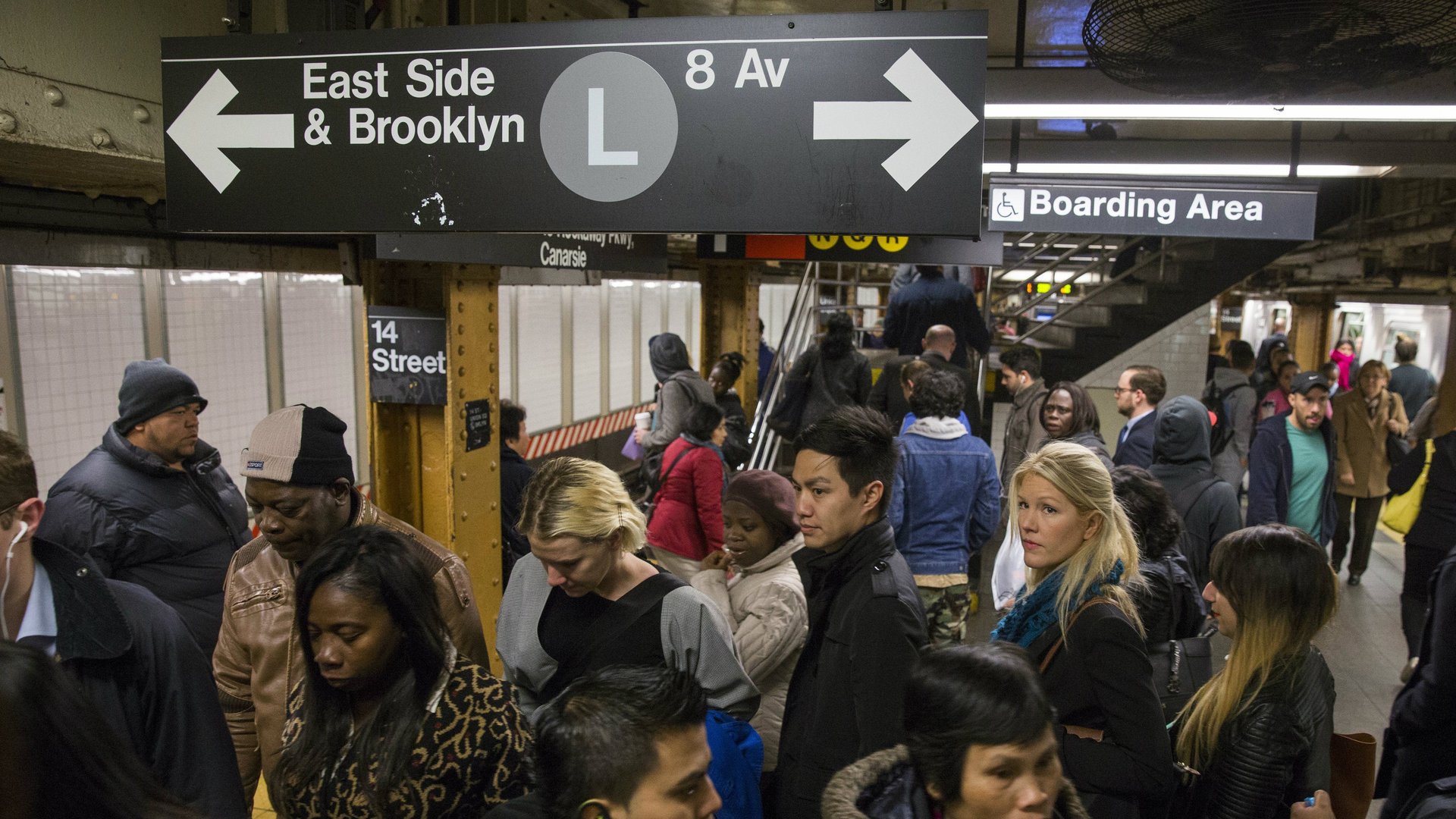You probably swapped gut microbes with everyone you’ve brushed up against on the subway
New research shows you share more with those on your morning commute than impatience.


New research shows you share more with those on your morning commute than impatience.
In a study published today (Jan. 15) in Science Advances, researchers found (paywall) evidence that the microscopic organisms that populate our gut may be easily shared through simple social interactions, from everything to handshakes to accidentally bumping into a fellow subway-rider.
“Even though you don’t think of gut bacteria being all over you, they kind of are,” Andrew Moeller, an evolutionary biologist at the University of California, Berkeley and co-author of the paper, told Quartz. ”You’re going to share more bacteria with people that you come into contact with frequently, but there’s also going to be some low degree of sharing that happens with people all across the world.”
Typically, when we think of sharing microbes, it’s pathogens that make us sick, like a shared office stomach flu. But Moeller says that most of the time, these exchanges are benign—and can even be a good thing. Microbiomes without much diversity have been associated with autoimmune problems or opportunistic infections; more variety is likely a good thing for our health.
Research on the human microbiome—the collection of bacteria and other microbes that live on and within us—has previously focused on the composition of one person’s collection of microorganisms. However, the fact that these microbes may be easily transferred through social interactions suggests it may be useful to think of microbiomes as a collective community.
To study these transfers, Moeller and his team collected data from chimpanzees. Over the course of eight years, they examined close to 100 stool samples from 40 chimps to determine which microorganisms were living in the animal’s stomachs and intestines at different times. They found that during periods of time when chimps were more social, they had more similar gut microorganisms. These similarities spanned maternal lines, meaning that interactions with all other chimps, and not their biological families, had an equally important role to play in developing individual microbial communities.
Chimps, of course, live in environments where much more fecal matter is present. Because of this, it may be possible that they exchange gut microbes more quickly than we do.
Even though sharing microorganisms may sound unappealing, many of these exchanges could be beneficial for our health. “I think it’s going to become clear that not all microbes are bad…and social transmission of microbes doesn’t have to be bad either,” says Moeller.